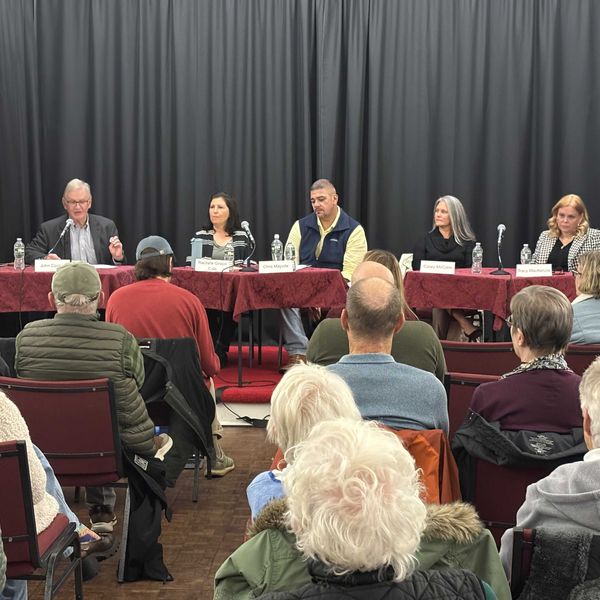Webutuck Elementary School students visit one-room Indian Rock Schoolhouse
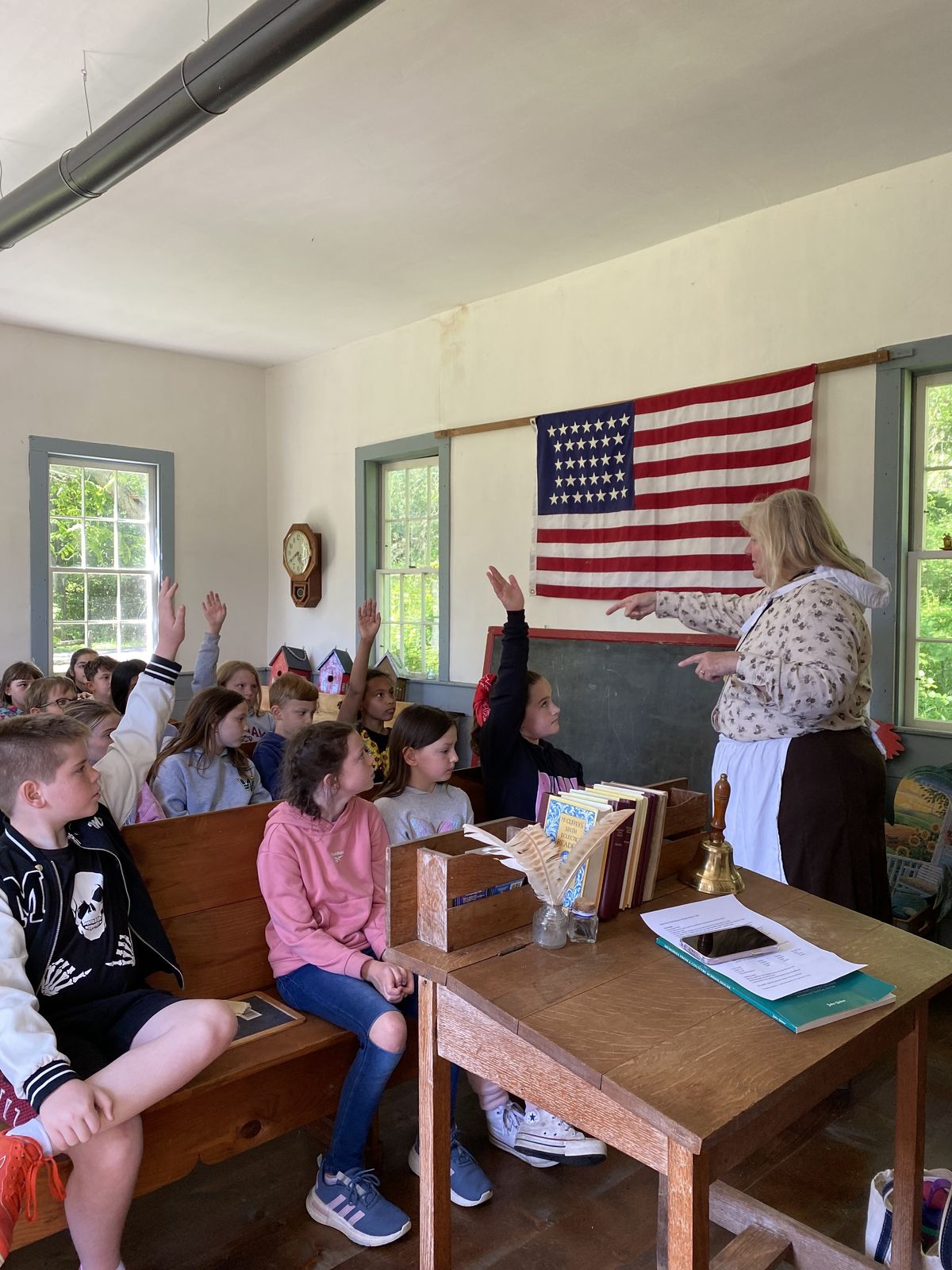
The 19th-century one-room school experience came alive for Third Grade students from Webutuck Elementary School during their annual visit to the Indian Rock Schoolhouse in Amenia on Friday, May 31. Webutuck librarian Elizabeth Murphy authentically portrayed the schoolmarm.
Leila Hawken
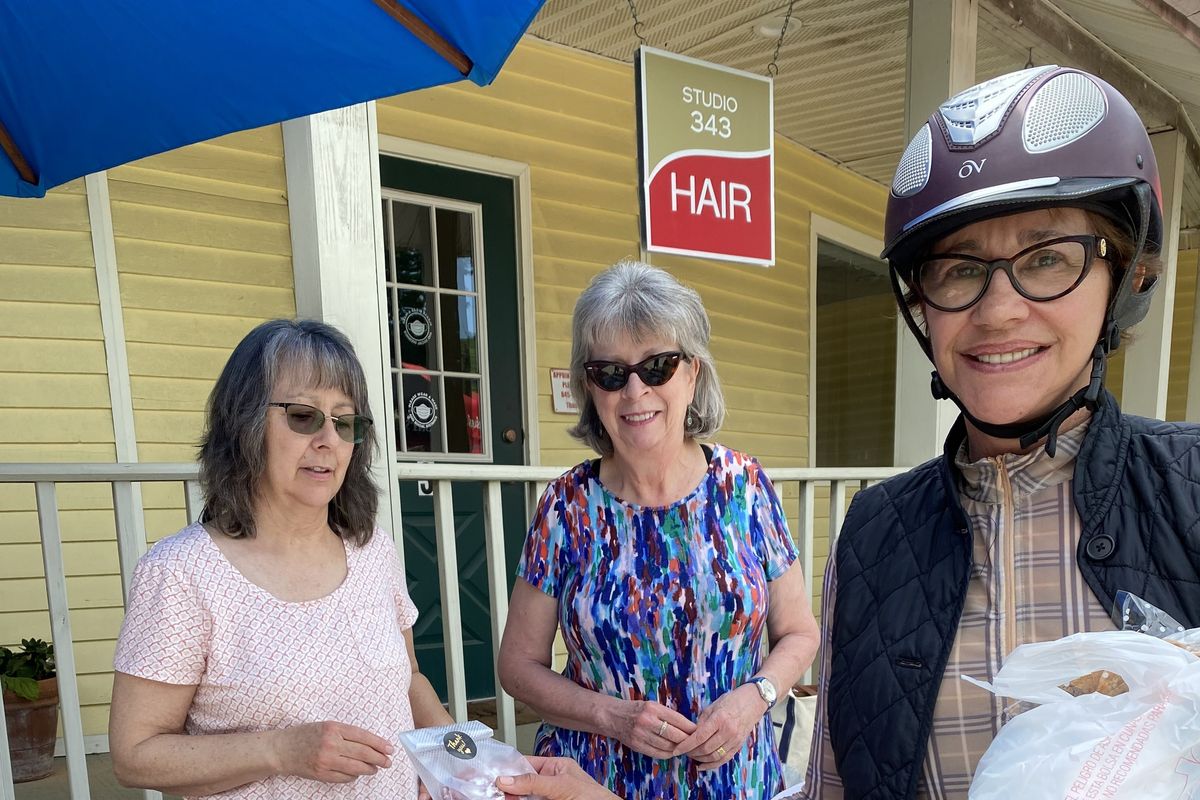

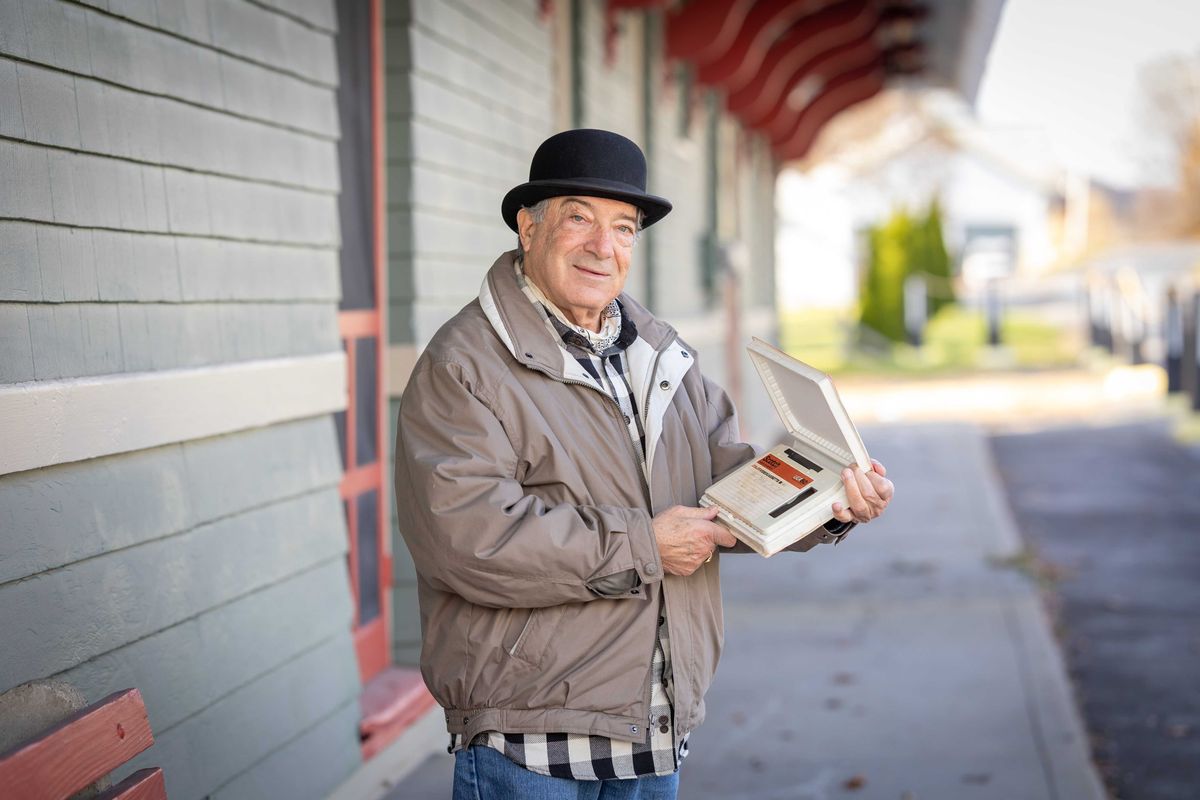




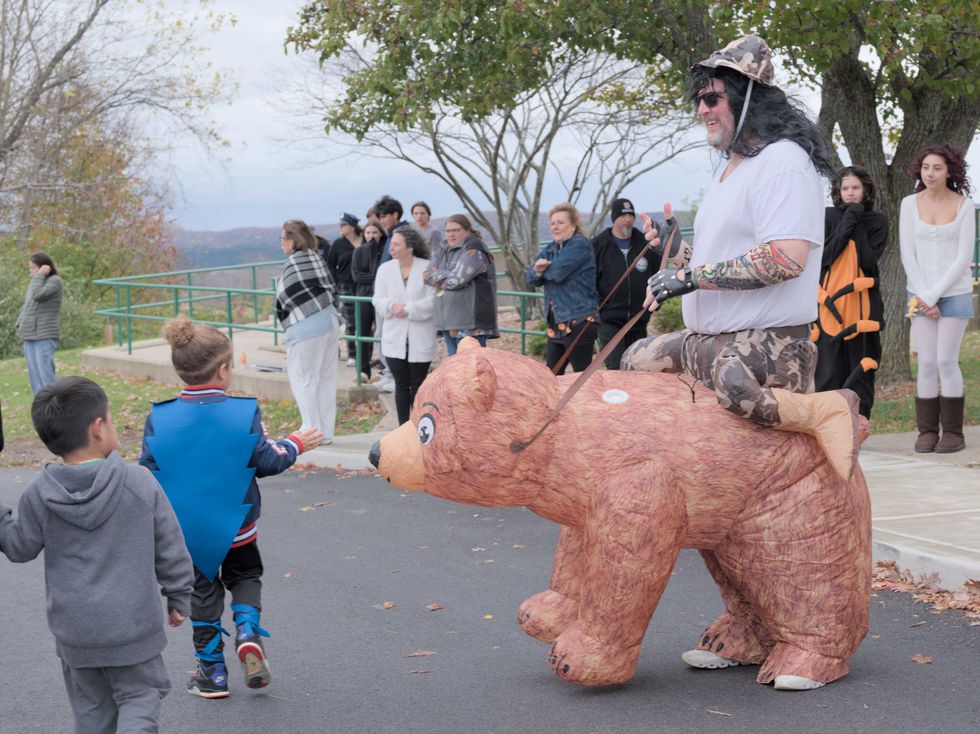 Webutuck High School social studies teacher Kevin Kleespies let students pet his bear steed as they passed.Nathan Miller
Webutuck High School social studies teacher Kevin Kleespies let students pet his bear steed as they passed.Nathan Miller




